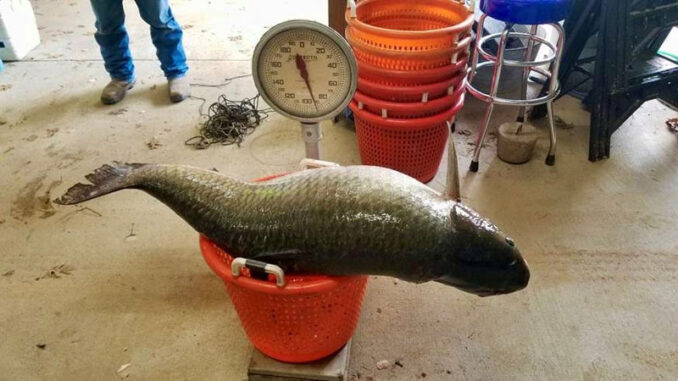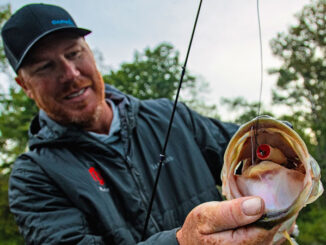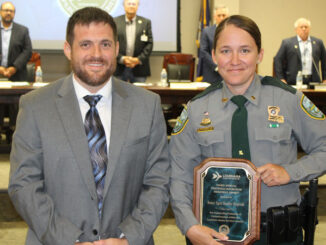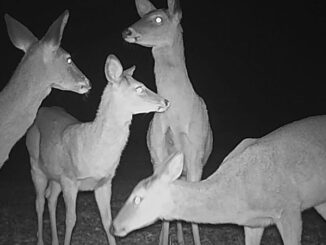
During standard spring electrofishing sampling on Lake Concordia on March 11, 2024, Louisiana Department of Wildlife and Fisheries (LDWF) biologists were shocked to find one particular fish in their samples, a 49.5-inch Grass Carp (Ctenopharyngodon idella) weighing in at a whopping 92 pounds. Had this carp been captured by traditional fishing methods, it would have bested the current IGFA All-Tackle World Record by 4 pounds, which was caught in Bulgaria in 2009. It would have tied the current Bowfishing Association of America World Record, which was caught in Alabama in 2015.
Grass carp are herbivorous fish native to Asia that have been used in the United States since the 1960s to control aquatic vegetation in inland waterbodies. In the 1980s, U.S. Carp producers began developing triploid Grass Carp. Triploid Grass Carp have three sets of chromosomes instead of two, making them sterile and unable to reproduce. This allows resource managers to use the non-native species as a biological control agent for some species of aquatic vegetation.
Triploid Grass carp are very effective in controlling aquatic vegetation such as hydrilla, coontail, and filamentous algae as they can consume well more than their body weight per day in plant material. Lake Concordia, historically, has not been stocked by LDWF with triploid Grass Carp.
“This is the first time we’ve ever observed a Grass Carp in Lake Concordia during our sampling,” said Shelby Richard, Inland Fisheries District 3 Biologist Manager. “It more than likely traveled through Cocodrie Bayou and arrived at Lake Concordia in backwater flowing from Cocodrie Bayou through the control structure into Lake Concordia.”
Samples were sent to the United States Fish & Wildlife Service’s La Crosse Fish Health Center in Onalaska, Wisconsin to determine if this was a diploid or triploid Carp. Even if it is a diploid carp, meaning it could reproduce, Lake Concordia does not have the necessary habitat for reproduction.


